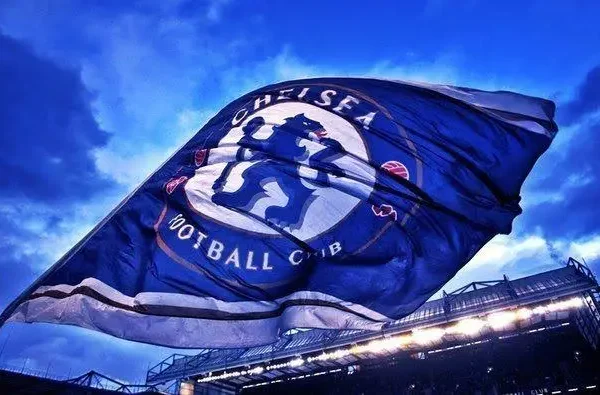When Chelsea fans filed into Old Trafford, they were prepared for a tense Premier League showdown against Manchester United. What they weren’t prepared for was witnessing one of the boldest—and most controversial—decisions of Enzo Maresca’s managerial career. Within the opening 21 minutes, the Italian coach stunned everyone by withdrawing his entire front three, including Cole Palmer, who stormed straight down the tunnel in visible frustration.
The move left commentators speechless, fans outraged, and the football world buzzing with one question: what on earth was Maresca thinking?
A Radical Response to a Red Card
The chaos began early. Chelsea were reduced to ten men after a reckless challenge from their goalkeeper, leaving Maresca scrambling to reorganize. Facing the daunting prospect of playing nearly 70 minutes a man down at Old Trafford, Maresca clearly felt drastic action was necessary.
But few expected him to go this far. Rather than tweaking his midfield or pulling just one attacker for a defensive replacement, the Chelsea manager tore up his plan entirely, sacrificing all three of his starting forwards.
It was a tactical gamble designed to plug the defensive holes, but it came at a massive cost: any semblance of attacking threat.
The Palmer Shock
The sight of Cole Palmer being withdrawn after just 20 minutes was the flashpoint. Palmer, Chelsea’s brightest creative spark this season, had barely touched the ball before being hooked. As his number flashed on the fourth official’s board, cameras caught the forward shaking his head. Moments later, he marched straight down the tunnel instead of joining the substitutes on the bench.
For fans, this moment was devastating. Palmer is not only a fan favorite but also one of the few players capable of producing a moment of magic against a top side like Manchester United. Removing him so early sent shockwaves through the Chelsea faithful, many of whom felt the team’s chances evaporated with his exit.
Fan Outrage
Social media erupted almost instantly. One fan posted:
“Subbing your entire attack in 21 minutes is madness. What’s the point of even showing up if you’re going to wave the white flag?”
Another added:
“Palmer straight down the tunnel says it all. He’s furious, and rightly so. Maresca has completely lost the plot.”
The frustration wasn’t limited to Chelsea supporters. Neutral fans and pundits alike were baffled by the decision. Instead of a measured response, Maresca seemed to have panicked, sacrificing creativity for damage control.
Pundit Reactions: “Cowardly or Calculated?”
In the Sky Sports studio, the decision was met with disbelief. One pundit described it as “cowardly,” arguing that Maresca effectively conceded defeat before halftime.
“This is Chelsea Football Club. You don’t just throw in the towel because of a red card. Keep Palmer on, adjust your shape, but give yourself a chance. Taking off your entire front three is waving the white flag.”
Another, however, suggested it might have been calculated:
“Maresca clearly thought the only way to survive at Old Trafford was to protect his backline. In theory, you can understand it. But in practice, you’ve just gutted your team’s only chance of scoring. It’s survival football, and Chelsea fans won’t accept it.”
Dressing Room Fallout
Perhaps the biggest concern for Chelsea now isn’t the defeat itself, but the dressing room repercussions. Palmer’s reaction—storming down the tunnel—was more than frustration; it was a statement. For a young star in form, being substituted so early sends a message that the manager doesn’t trust him in adversity.
Other attackers, too, will have been left bruised by the decision. Strikers thrive on confidence, and being hauled off so early can destroy morale. For Maresca, repairing those relationships will be a monumental task in the days ahead.
Tactical Breakdown: What Was Maresca Thinking?
On paper, the reasoning is clear: with ten men, Maresca wanted to shore up his midfield and defense. By withdrawing attackers, he added fresh legs at full-back and midfield, hoping to contain United’s pressure.
The problem? Chelsea became utterly toothless going forward. João Pedro was left isolated, with no support runners, while United dominated possession and territory. Every time Chelsea won the ball back, there was no outlet, no counterattacking threat.
In essence, Maresca traded any hope of scoring for a slim chance of damage limitation. And once United found the net, there was no way back.
History of Drastic Subs
While rare, this isn’t the first time a manager has made radical substitutions early in a game. José Mourinho, famously, once substituted two players before halftime to send a message. But the difference is clear: Mourinho’s changes were about discipline and tactical statement. Maresca’s, however, looked like desperation.
The optics matter. Fans can accept bold decisions when they appear calculated. But when they come across as panic-driven, they erode trust.
Media Narrative: Pressure Mounts
The British press wasted no time framing the decision as a symbol of Maresca’s struggles. Headlines screamed of “chaos” and “capitulation.” With Chelsea’s season already stumbling, this match—and Maresca’s shocking substitution call—could become a defining moment in his tenure.
Critics argue that he’s out of his depth at this level, unable to adapt under pressure. Supporters, meanwhile, are split: some back him for making tough calls, while others see him as a manager crumbling when it matters most.
What This Means for Chelsea’s Season
The fallout extends beyond one match. If Palmer’s frustration lingers, Chelsea risk alienating their most important creative force. If the squad loses confidence in Maresca’s decision-making, performances could deteriorate further.
The timing couldn’t be worse. With fixtures piling up and rivals pulling ahead, Chelsea need unity, clarity, and strong leadership. Instead, they are left with questions, anger, and a manager under siege.
Conclusion: A Defining Gamble
Football is full of gambles, and managers live and die by them. Enzo Maresca’s decision to substitute his entire front three within 21 minutes will go down as one of the boldest gambits in recent Premier League memory.
But was it brave management or reckless surrender? For many Chelsea fans, the answer is already clear. This was the night Maresca showed fear rather than faith, and the fallout could shape not only Chelsea’s season but his own future at Stamford Bridge.
As for Palmer, the image of him storming down the tunnel may linger as the defining picture of a fractured night—a symbol of frustration, wasted potential, and a manager who might just be losing the dressing room.


